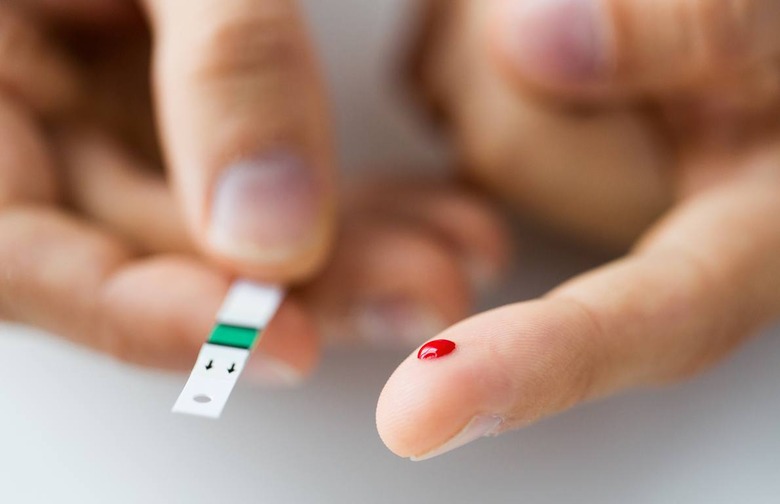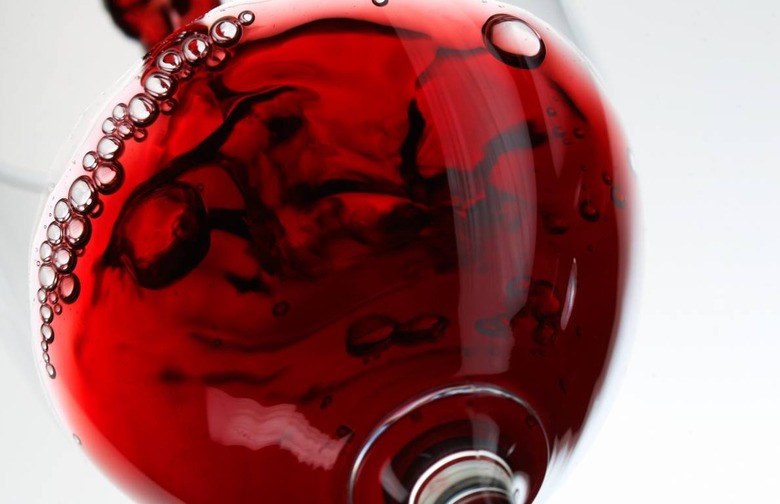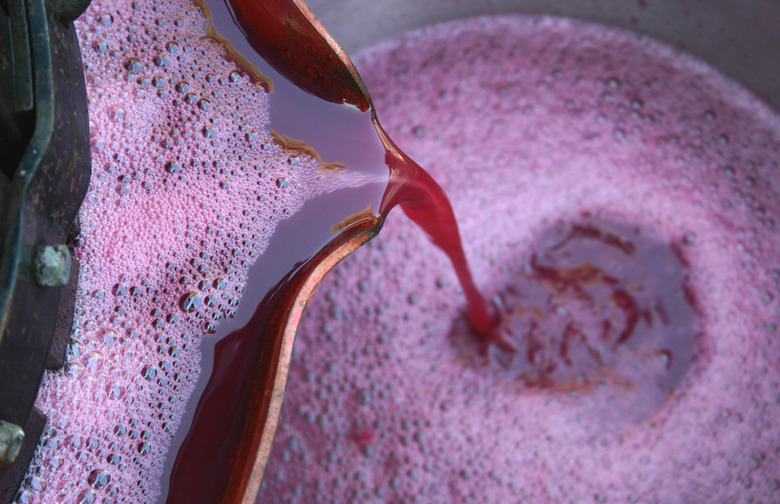10 Reasons Wine Is Good For You
By now, you've probably heard that drinking a glass of wine is as healthy as an hour in the gym. For those with a love of fitness, it's hard to see how enjoying a glass of red or white could even come close to deadlifting for an hour or an hour's worth of sprint intervals. People actively looking for any excuse not to work out love replacing spin class or chest day with wine, though, and science has provided them with a great excuse. The question that begs an answer is: Can wine possibly be that good for you?
While glancing over the list of things to know about wine and your waistline, it becomes apparent that a moderate amount of wine won't do much damage in terms of bodyweight. In America, the government claims that most men can enjoy 10 ounces of wine daily, whereas most women can have five ounces, and remain healthy. Other countries define standard sizes and moderate drinking differently.
If we focus on moderate drinking as prescribed for Americans, we can get down to the bottom of just how healthy wine is. As you'll see in the accompanying slideshow, five or 10 ounces of wine a day can be incredibly beneficial — all the more reason to seek out one of the 25 Best Wine Lists in America.
We'd be remiss not to note that doctors rarely (if ever) recommend that people who don't already drink pick up the habit for health reasons. Drinking wine won't completely cure or prevent the diseases mentioned below, but it can certainly can function as part of anyone's healthy lifestyle. With that in mind, cheers to wine and to good health!
Controls Blood Sugar
According to researchers at the University of Massachusetts, Amherst, it's possible that red wine may be able to help regulate blood sugar. Antioxidants in red wine may slow the passage of sugar and prevent a blood sugar spike — making red wine potentially beneficial for those who suffer from type 2 diabetes. When selecting a bottle from one of the 101 Best Wineries in America with health in mind, you may want to remember that reds contain approximately 10 times more of these beneficial antioxidants than whites.
Decrease in Bone Loss
Could wine be better for bone strength than a glass of milk? A 2011 study featured in the European Journal of Clinical Nutrition found that red wine may help improve bone density in men over 50, therefore reducing the risk of osteoporosis. It's believed that the polyphenols in grape skins are to thank for this.
Healthy Digestion
"Red wine can help shift the types of bacteria in your digestive track so there's more of the good kind, making you healthier and potentially leaner," says Dr. Mike Roussell in an article in Prevention. Just as with onions, garlic, raw honey, asparagus, and other prebiotic foods, unused polyphenols from red wine help the good bacteria grow, promoting a happy gut and healthy digestion.
Helps Memory and Cognitive Function
Anyone who's ever woken up a bit fuzzy on the details of last night's outing at the wine bar has to laugh a little hearing that wine can help the brain. If you can manage to avoid an alcohol-induced black out, research indicates that drinking a moderate amount of wine may help your memory and overall cognitive function. It can also reduce one's risk of suffering from dementia and Alzheimer's. Just as healthy fats like avocado and coconut oil do, alcohol promotes the production of HDL, the "good" cholesterol, helping to reduce inflammation and clogging in the walls of arteries. For this same reason, it is also believed that drinking moderate amounts of wine can help reduce the risk of suffering from a stroke.
Inhibits Multiple Types of Cancer
Drinking wine has been linked to the prevention of a number of different types of cancer — ovarian, prostate, and colon are three great examples. Studies show that drinking red wine in moderation reduces the risk of colon cancer by nearly 45 percent. Many experts believe that the phytoestrogens in wine, more specifically resveratrol, give it its ability to inhibit cancerous cells from forming.
What's more, a University of Michigan study showed that red wine helped kill ovarian cancer cells in a test tube. According to the University of Maryland School of Pharmacy, resveratrol, which can also be found in grapes, can prevent human breast cancer cells from growing.
Keeps You Slim and Trim
By the last sip of your glass of red, you might feel sexier — but it's not all in your head. In addition to these 7 Sexy Wine Facts That Will Make Your Date Fall for You, wine-drinkers will probably be happy to hear that the amount of energy being spent creating the enzymes required to digest wine can oftentimes equal the amount of energy (please read this as calories) in a glass.
A study done by the Wine Market Council brought the fact that Millennial Women Drink More Vino Than Anyone Else in America to light. We're wondering if they knew that it was helping them maintain a healthy weight: A 13-year-long study of more than 19,000 women suggested that consuming light to moderate amounts of alcohol lowers your risk of becoming overweight. Out of the four types of alcohol tested — red wine, white wine, beer, and liquor — red wine had the strongest effect on the subjects' ability to lose weight.
Lowers Cholesterol
Remember how we discussed the way in which wine can impact cholesterol while we were discussing brain health? If not, you may want to reach for a bottle, perhaps even one with a cool label, to fortify your memory. Here's a bit more about how wine can help you maintain healthy cholesterol levels: According to Yale-New Haven Hospital, antioxidants present in red wine can lower LDL cholesterol, the "bad" stuff, and raise HDL cholesterol (refresher: the "good" cholesterol). Wine itself contains zero milligrams of cholesterol, yet it can manage to raise HDL levels anywhere from five to 15 percent.
Prevents Heart Disease
Your nightly glass of red wine could also keep your heart healthy, according to the American Heart Association. Moderate alcohol use can prevent atherosclerosis, or fatty deposits that form on the walls of blood vessels and often cause blood clots, which can lead to potentially fatal heart attacks.
Though moderate intake of many types of alcohol can prevent atherosclerosis, red wine's effect on the development of the disease is stronger in comparison; the AHA's studies have also suggested that red wine prevents coronary heart disease and strokes more so than any other type of alcohol. Consider finding a wine that pairs nicely with one of these 12 Heart-Healthy Foods You Should Be Eating (we suggest a rich bar of dark chocolate and a glass of cabernet sauvignon).
Reduces Risk of Depression
Your zinfandel, even if it's one that costs less than $20, might help you kick the after-work blues — and maybe just the blues in general. According to research, drinking wine is associated with lower rates of depression.
While moderate consumption of wine may reduce your risk of depression, make sure not to let that one glass a night become one bottle; heavy drinking can increase your risk. If you want to down a healthy, depression-fighting beverage, try one of these 9 Healthful Drinks for Managing Depression.
Slows the Aging Process
Believe it or not, wine is one of many foods that can help you live to be 100. While a glass of wine may not have the same effects as a sip of water from the spring in Tuck Everlasting, resveratrol may be able to slow the aging process by activating enzymes that are involved in DNA repair, circadian clocks, and other vital bodily processes. We'll leave you with a Tuck Everlasting quote that can readily be applied to wine:
"Like all magnificent things, it's very simple."









